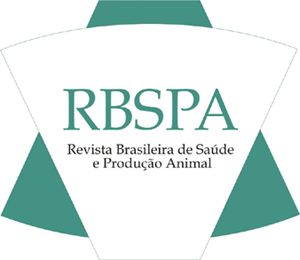SUMMARY
The aim of the study was evaluate the production potential for methane (CH4) and carbon dioxide (CO2), short-chain fatty acids, ammonia nitrogen (N-NH3) and pH by semi-automated techniquein vitro from biodiesel byproducts cottonseed cake (Gossypium hirsutum), castor bean (Ricinus communis), moringa cake (Moringa oleifera), jatropha cake (Jatropha curcas) and sunflower cake (Helianthus annuus) substituting corn silage in increasing levels, 0, 30, 50 and 70%. The experimental design used was completely randomized in a 5 x 4 factorial arrangement (byproducts and substitution levels). The inoculum for the in vitro incubations was obtained from three Holstein cows with rumen fistulas. In the experiment, the conditions were verified for the differences in potential gas production among the ingredients. The byproduct of cotton was the ingredient with the greatest potential to produce acetate, butyrate, CO2 and CH4. The byproduct of moringa had the lowest potential for the production of acetate, butyrate, CO2 and CH4 from in vitro degraded dry matter and a greater potential for the production of propionate. Among the byproducts studied, moringa was distinguished for promoting mitigation of CH4 and obtaining levels of pH and N-NH3 satisfactory for maximum rumen fermentation; thus, it is recommended the byproduct of moringa to replace corn silage because reduces environmental impact without impairingin vitro rumen fermentation.
acetate; CO2; CH4; propionate; Ricinus communis
